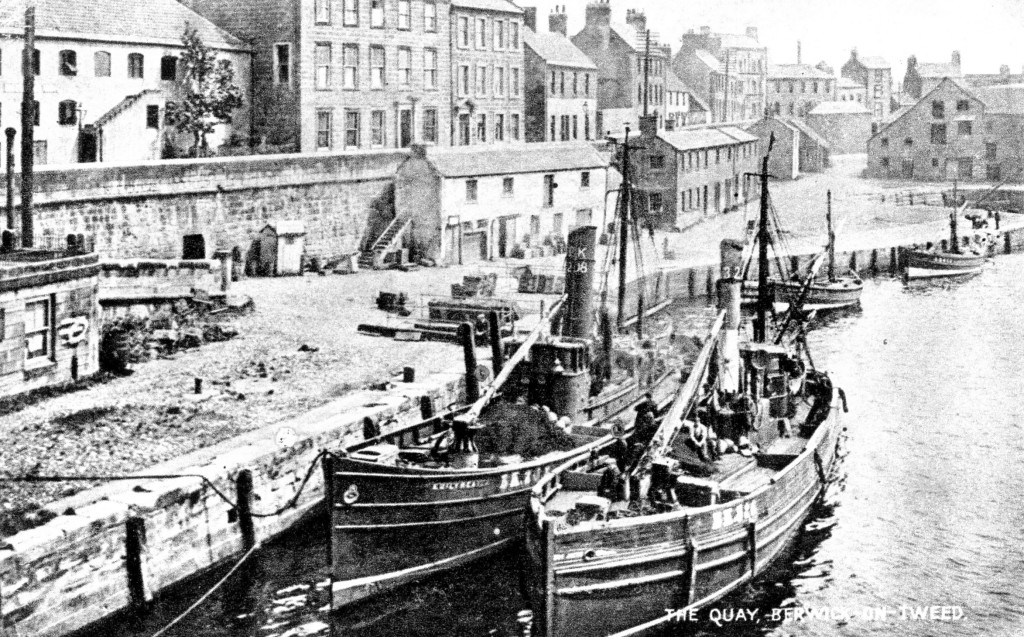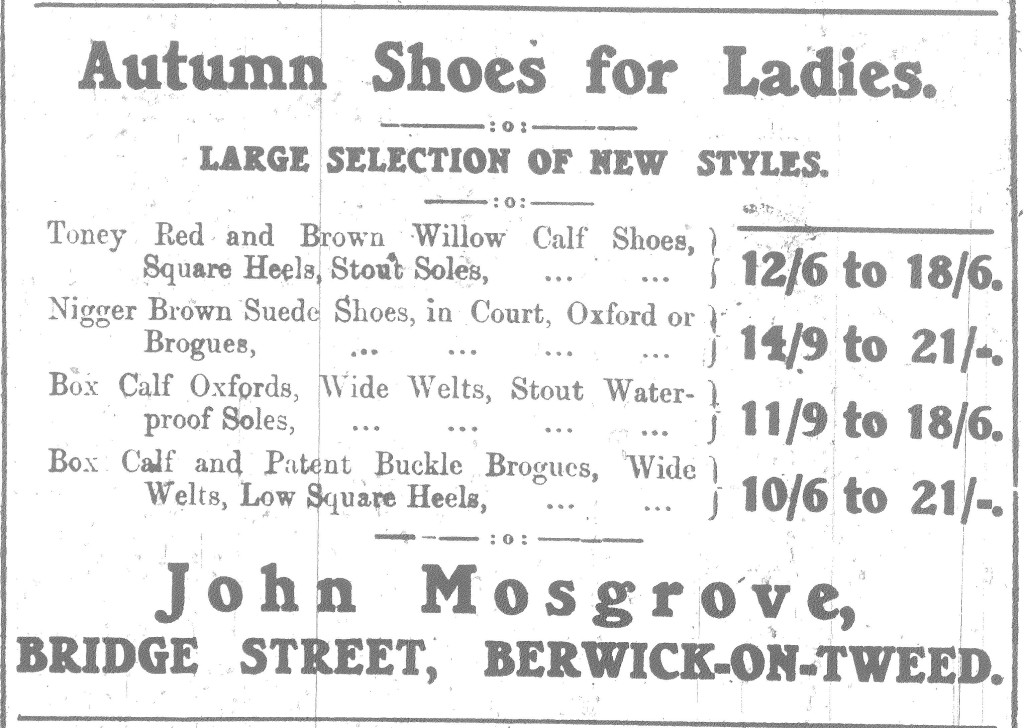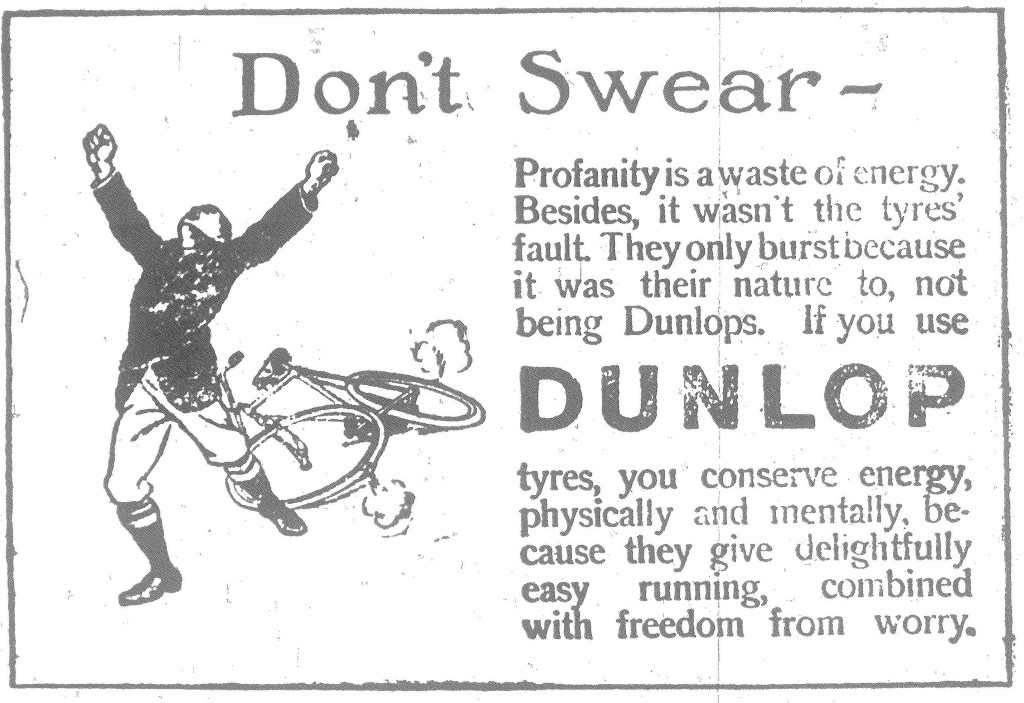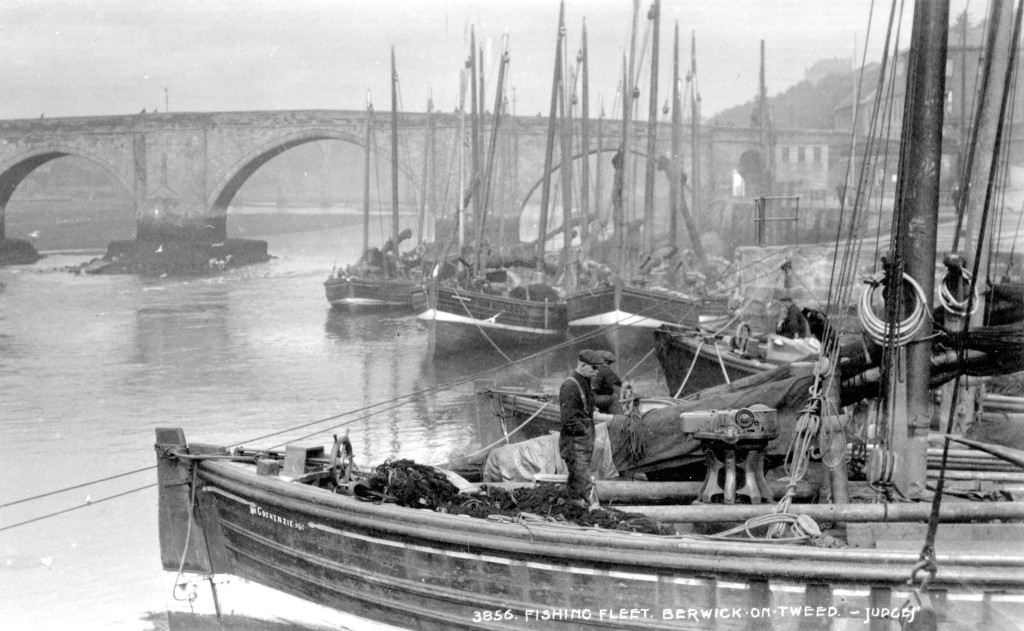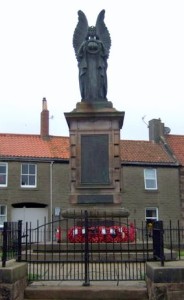BERWICK ADVERTISER, 7 JANUARY 1916
THE NEW YEAR
BERWICK
The celebration of the New Year in the streets of the ancient borough of Berwick appeared to maintained in much the customary fashion despite the effects of the war. The weather was dull and wet, but the streets bore an animated appearance, the khaki uniform predominating among the pedestrians. The lighting restrictions, combined with the weather exercised a damping effect on the majority of grown-ups, but the young idea moved about exchanging the compliments of the season in a hearty and hilarious fashion, while lively and popular songs added zest and variety to the proceedings.
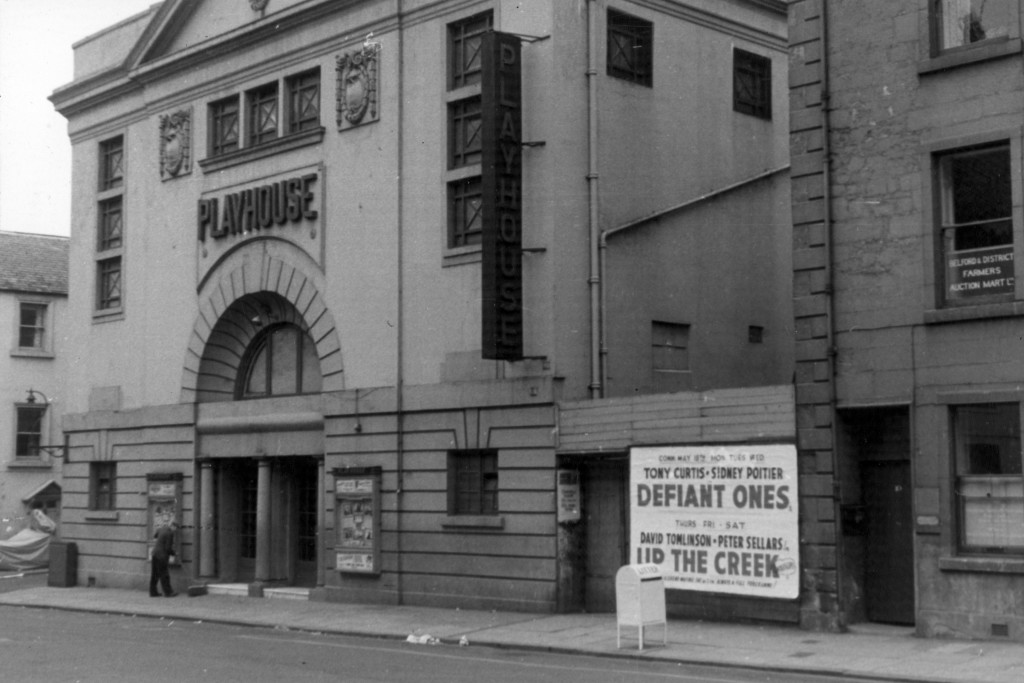
The only place of public entertainment in the Borough, the Playhouse, drew large crowds, and the performances were very much appreciated. The shops drew large numbers in the making of seasonable purchases, and in laying in additional supplies to tide the householder over till Monday. As the evening advanced the thoroughfares assumed a more livelier air, the hum of voices and merry shout emphasising the fact that the old year was slowly vanishing, and that the majority were out for the night to witness the actual death. As usual a number seemed to give way to over indulgence, but as a reasonable latitude was for once allowed the police were not called upon to interfere, the result being that there was a clean bill on the first morning of 1916. Towards midnight large numbers assembled at the foot of the Town Hall to hear the knell of the old year and the peel that welcomed the new born year. The usual good wishes were exchanged and thereafter friendly visits were paid to the houses of acquaintances. For a considerable time after twelve o’clock the thoroughfares resounded to the shouts of the merry makers. Saturday was a general holiday. The weather continued dull and wet, and few people were to be seen in the streets. The special performances at the Playhouse were again well patronised. On the whole the New Year was quietly celebrated, all circumstances tending to have this effect.
EXHIBITION OF CAPTURED GERMAN GUN AT BERWICK
The Mayor of Berwick (Ald J. W. Plenderleith), has just been notified by the authorities in charge of the Scottish Command in Edinburgh that a captured German gun is being sent to Berwick for exhibition purposes. In making the notification it was enquired which would be the most convenient site to have the gun placed, and His Worship in reply suggested the Parade between the military huts and Wallace Green Church.
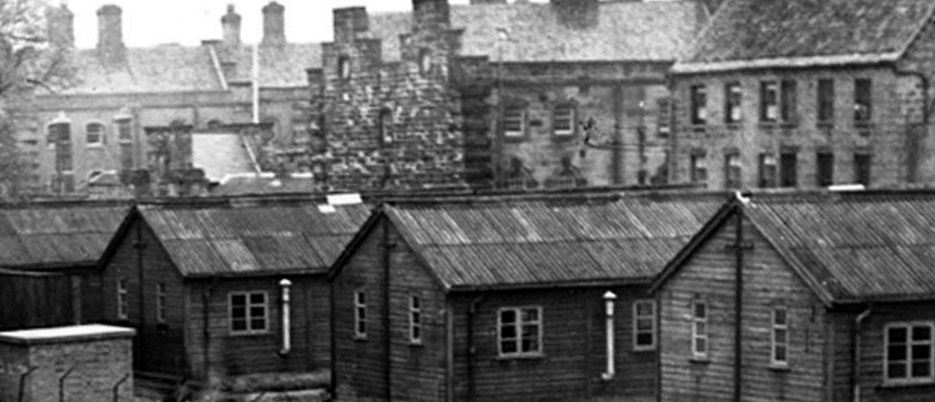
The military authorities have expressed themselves pleased with the proposed site, and the gun will be exhibited in presence of a military guard. It is understood that the captured gun will be on exhibition for three days from nine a.m. till four p.m. and that it will be removed to the Barracks each evening. No definite date has yet been fixed for the arrival of the gun.
A PRETTY WEDDING
On December 27th, at Trinity Presbyterian Church, Sunderland, the marriage was solemnised of Mr E. Norman Chapman, York, to Miss Sadie Waters, daughter of Mr Thomas Waters, Wooler. The bride was given away by her father, and the bridesmaid was Miss M. H. Brand, cousin of the bride. Miss Allison James and master Reggie Waters, niece and nephew of the bride, acted as attendants. The best man was Mr E. Settle of York. Rev. R. L. Wiseman officiated. The bride was charmingly attired in a costume of saxe blue galardine, trimmed fur, with hat to match. She carried a lovely shower bouquet, and wore a brooch of rubies and diamonds, the gifts of the bridegroom. The bridesmaid wore a costume of navy blue and large white hat, and a gold bangle, the gift of the bridegroom. The bridegroom’s gift to Miss Allison James, who looked very pretty in a dress of pale grey, was a gold chain pendant, and to Master R. Waters a silver watch and chain. A reception was held at the house of the bride’s brother, Hunter Terrace, and later the new-married couple left for their future home in York. They were the recipients of a large number of useful and beautiful presents.
LOCAL NEWS
Bankhill Church Intercessory Services – The Rev. R. Leggat at the morning intercessory service on Sunday read the roll of honour of the young men attached to the 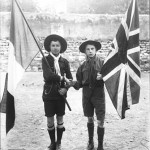 congregation. He mentioned that 27 were on active service, while all the men of military age, with the exception of three who were exempts, had enrolled under the Derby Scheme. New Pipe Band – The first appearance of the Berwick Boy Scouts Pipe Band under Piper Major Lawrie, of the Royal Scots, took place at the Pier Field, on Saturday, the occasion on being a football match between the Boy Scouts and the Sea Scouts, in which the former won by four goals to one. The band made a very creditable appearance, and the selections were much enjoyed.
congregation. He mentioned that 27 were on active service, while all the men of military age, with the exception of three who were exempts, had enrolled under the Derby Scheme. New Pipe Band – The first appearance of the Berwick Boy Scouts Pipe Band under Piper Major Lawrie, of the Royal Scots, took place at the Pier Field, on Saturday, the occasion on being a football match between the Boy Scouts and the Sea Scouts, in which the former won by four goals to one. The band made a very creditable appearance, and the selections were much enjoyed.


